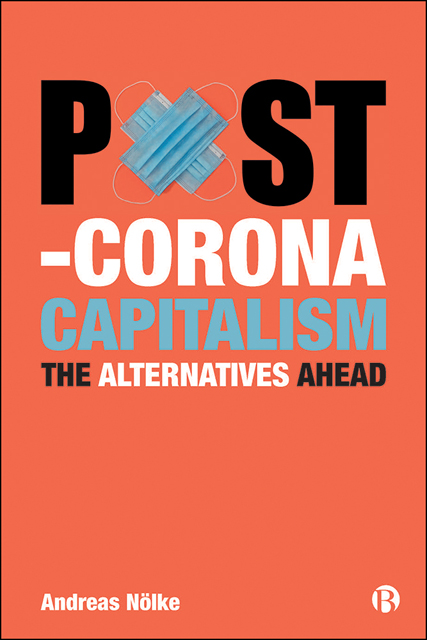Book contents
- Frontmatter
- Dedication
- Contents
- List of Abbreviations
- Acknowledgements
- Preface
- 1 Introduction: Confronting a Multidimensional Crisis of Capitalism
- Part I Capitalism and Society
- Part II Domestic Institutions of Capitalism on the Demand Side
- Part III Domestic Institutions of Capitalism on the Supply Side
- Part IV The International Institutions of Capitalism
- Part V Anthropocene Capitalism
- Part VI Geo-economic Shifts in Global Capitalism
- Part VII Ideologies in Contemporary Capitalism
- References
- Index
20 - Trade Policy: Liberalism or Protectionism?
Published online by Cambridge University Press: 13 October 2022
- Frontmatter
- Dedication
- Contents
- List of Abbreviations
- Acknowledgements
- Preface
- 1 Introduction: Confronting a Multidimensional Crisis of Capitalism
- Part I Capitalism and Society
- Part II Domestic Institutions of Capitalism on the Demand Side
- Part III Domestic Institutions of Capitalism on the Supply Side
- Part IV The International Institutions of Capitalism
- Part V Anthropocene Capitalism
- Part VI Geo-economic Shifts in Global Capitalism
- Part VII Ideologies in Contemporary Capitalism
- References
- Index
Summary
Even in a world of global production networks, trade policies remain important for capitalist economies. They regulate the conditions under which goods and services may cross borders; for example, by imposing tariffs or regulatory norms. Countries can choose more liberal or more protectionist policies. With the onset of the coronavirus crisis, several governments have implemented protectionist policies; in particular, by limiting the export of medical supplies. Moreover, we can observe increasing indications of a public discourse that turns against trade liberalization. Political economy approaches help us to identify the motivations behind these policies and declarations, as well as the consequences for the institutions of global trade governance. Should we continue on this path to a somewhat increased protectionism or move back to trade liberalism?
Trade policy and International Political Economy
International trade policies are the most established topic in International Political Economy scholarship. Each textbook features at least one comprehensive chapter on the topic; some, a whole series of chapters (Oatley, 2019). While there is a long list of trade policy instruments and institutional settings, as well as a great variety of theories on how to explain trade policies, the core issue always is the juxtaposition between free trade and protectionism.
Proponents of free trade claim that a specialization of countries based on their comparative advantages leaves everybody better off. While Adam Smith highlighted the importance of specialization for enhancing productivity due to economies of scale, David Ricardo demonstrated that trade can also improve overall welfare when one country has absolute advantages on the production of all goods and services. Modern trade theories added that this does not only relate to labour productivity, but also to factor endowments such as capital, land and labour. Correspondingly, some countries are supposed to focus on agricultural production and others on labour-intensive industries. Liberals despise protectionist measures because they limit overall welfare. Moreover, they assume that protectionist measures are put in place in order to increase the profits of individual companies, because these measures limit competition (O’Brien and Williams, 2016: 104–5).
Critics of free trade argue that the latter has strong distributive consequences. Some countries – and some groups within countries – gain much more than others. In particular, countries that focus on agriculture – or the exploitation of other natural resources – will always stick to that specialization if they adhere to free trade.
- Type
- Chapter
- Information
- Post-Corona CapitalismThe Alternatives Ahead, pp. 125 - 129Publisher: Bristol University PressPrint publication year: 2022



